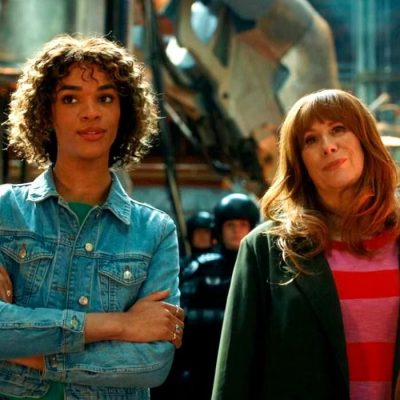BBC has unapologetically stood its ground in response to complaints about the inclusion of a transgender character in the globally popular television show Doctor Who. The broadcaster received 144 complaints about a transgender character, Rose Noble, appearing in the first of the three Doctor Who 60th anniversary specials, “The Star Beast”.
In the episode, Rose Noble, portrayed by Yasmin Finney of Heartstopper, is depicted as a young transgender girl supported by her family in her transition, yet still facing transphobic bullying at school. Her identity becomes a vital factor in the plot resolution, linking back to Donna’s storyline from the 2008 episode Journey’s End. Viewers who filed complaints deemed Rose’s inclusion as “anti-male” and an “inappropriate inclusion” an accusation BBC has firmly dismissed.
It’s important to note that the number of complaints represents a tiny fraction of Doctor Who’s audience. The episode was watched by 7.6 million people within the first week of its broadcast in the UK, making it one of the most-watched shows in the country that week and one of the most-viewed and best-received episodes of the show in several years. Evidently, the inclusion of a transgender character did not ruin the show’s reputation; in fact, they’re still making it!
The BBC has now publicly responded to the complaints, a step it is obliged to take when issues generate significant numbers of complaints or raise significant issues with its programming. The response was supportive of diversity and inclusive representation on the show, stating: “As regular viewers of Doctor Who will be aware, the show has and will always continue to proudly celebrate diversity and reflect the world we live in. We are always mindful of the content within our episodes.”
During a press conference last month, returning showrunner Russell T. Davies echoed this sentiment. Davies condemned the increasing attacks on trans representation in media and the trans community in the UK, stating: “[There are] newspapers of absolute hate, and venom, and destruction, and violence who would rather see that sort of thing wiped off the screen destroyed. Shame on you, and good luck to you in your lonely lives.”
It’s good to see the BBC’s commitment to diversity and inclusivity in its programming, regardless of a small fraction of audience disapproval. The broadcaster’s stance highlights the importance of representation and mirrors the diverse world we live in.









Leave a Reply